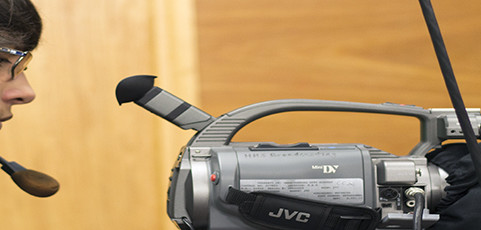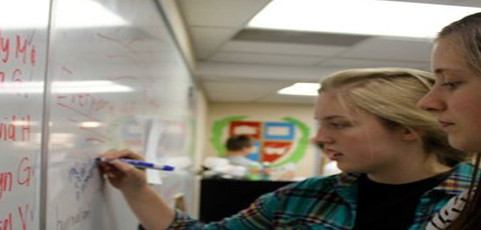• American Society of News Editors The ASNE Youth Journalism Initiative, launched in 2000, provides journalism-related training and resources for teachers and students through its website, SchoolJournalism.org . The initiative also sponsors weekly and monthly journalism contests for students, as well as the Quill and Scroll International Writing and Photo Contest . ASNE’s goal is for every student to learn why news matters and acquire the skills needed to succeed as 21st century citizens.
• ASNE Reynolds High School Journalism Institute The Reynolds High School Journalism Institutes are intensive two-week journalism training programs for secondary-school teachers coordinated by the ASNE Youth Journalism Initiative. The Institutes combine in-depth instruction on journalism skills with hands-on experience in reporting, writing, editing, design, videography, photography, multimedia and online news. Teachers learn how to help students develop news literacy skills and understand their rights and ethical responsibilities as student journalists and citizens. http://www.schooljournalism.org/reynolds-high-school-journalism-institute/
• Center for Scholastic Journalism The Center, located at Kent State University in Ohio, is committed to conducting and collecting the best national and international research on scholastic media and the role it plays in journalism education and citizenship training. The center also provides educational, legal and ethical scholastic resources. http://csjkent.edu
• Columbia Scholastic Press Association Founded in 1925, the association unites student editors and faculty advisers working with them to produce student newspapers, magazines, yearbooks and online media. The association is owned by Columbia University and operated as a program affiliated with its Graduate School of Journalism. http://www.columbia.edu/cu/cspa/
• Journalism Education Association The nation’s largest national scholastic journalism organization for teachers and advisers. The organization offers training workshops and conventions, print and online educational and resources, and monitors and defends First Amendment and scholastic press rights issues nationally. http://jea.org http://jeasprc.org http://jeadigitialmedia.org
• National Scholastic Press Association The National Scholastic Press Association provides journalism education training programs, publishes journalism education materials, provides media critique and recognition programs for members, provides information on developments in journalism and student media and provides a forum for members to communicate with others and share their work. Through these activities, NSPA and its divisions promote the standards and ethics of good journalism as accepted and practiced by print, broadcast and electronic media in the United States. NSPA and its divisions also endorse and advocate free expression rights for student media. http://www.studentpress.org
• Quill and Scroll Society Quill and Scroll International Honorary Society for High School Journalists was organized April 10, 1926, at the University of Iowa by renowned pollster George H. Gallup and a group of high school advisers for the purpose of encouraging and recognizing individual student achievement in journalism and academics. The organization provides educational resources, contests and workshops for students and educators. http://www.quillandscroll.org





